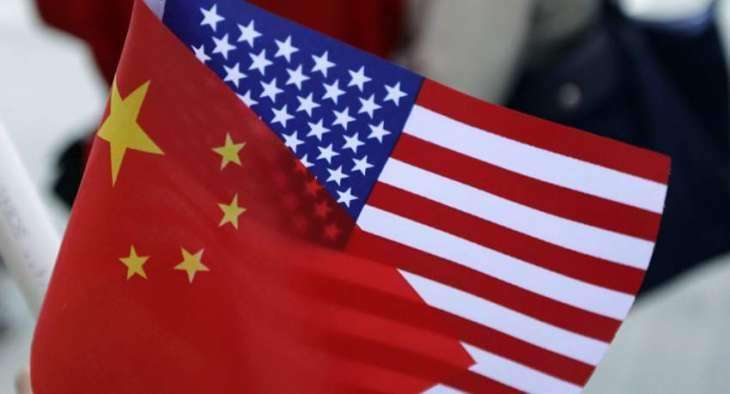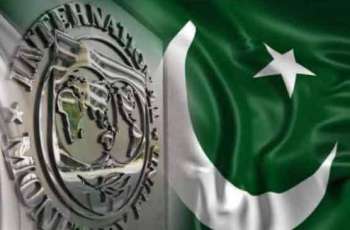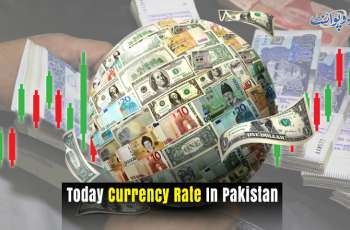When Chinese and US trade officials meet in Washington this week, the bilateral trade negotiations could make substantial progress toward reaching an agreement that is sustainable after both countries learned about the other sides stance from the previously collapsed agreement in May, experts told Sputnik.
MOSCOW (Pakistan Point News / Sputnik - 21st August, 2018) When Chinese and US trade officials meet in Washington this week, the bilateral trade negotiations could make substantial progress toward reaching an agreement that is sustainable after both countries learned about the other sides stance from the previously collapsed agreement in May, experts told Sputnik.
A Chinese delegation led by Vice Commerce Minister Wang Shouwen is expected to arrive in Washington this week and hold meetings with US officials led by the Treasury Under Secretary David Malpass. The resumption of trade negotiations between the worlds two largest economies came after both sides slapped steep tariffs on each others goods valued at $50 billion last month.
During Chinese Vice Premier Liu Hes visit to Washington in May, the two countries reached "a consensus on taking effective measures to substantially reduce the United States trade deficit in goods with China," according to a joint statement released following Lius visit. However, the trade agreement collapsed shortly afterwards, when US President Donald Trump decided to go ahead with the plan to charge Chinese goods with 25 percent import duties. China responded with retaliatory tariffs of the same rate against US goods.
When officials from both countries resume trade negotiations this week, they are in a better position to make meaningful progress toward reaching an agreement that can be accepted and executed by both sides, political experts suggested.
"You cant really call the previous trade agreement a failure, because the Chinese side believed the United States did not keep their words. Thats why China dispatched a vice minister this time to probe the bottom line of the Unite States first. But if both sides can reach an agreement this time, it has a bigger chance of being successful. Thats because both sides have understood the other sides bottom line much better," Zhang Baohui, the director of the Center for Asian Pacific Studies at Hong Kong's Lingnan University, told Sputnik.
The expert explained that the key to both sides reaching a sustainable consensus depends on the intentions of the United States.
"Its anybodys guess if both sides can reach a long term trade agreement. But to a certain degree, it all depends on the intentions of the Trump administration. If Trumps concern is only focused on reducing the trade deficit, it would be much easier for both sides to reach an agreement, as long as China offers more concessions on trade. But if Trumps goal is to prevent Chinas rise, it would be much more difficult to reach an agreement, unless Beijing accepts all of the US demands, which is highly unlikely," he said.
Other Chinese trade experts believe it is unlikely for China and the United States to find a long-lasting solution to the trade dispute, because of the growing rivalry between the two nations on the global stage.
"Based on a series of US laws introduced recently, including the National Defense Authorization Act, which strengthens reviews on foreign investments, China continues to face the pressure of long-term strategic competition from the United States. The trade war could become a �new norm. I believe the long-term rivalry between China and the United States will continue, as new conflicts are sure to emerge in the future," Cheng Dawei, a professor of economics at Renmin University in Beijing, who specializes in international commercial diplomacy and WTO related studies, told Sputnik.
After more than five weeks of dealing with the consequence of steep tariffs on both sides, as Chinese exporters face squeezed profit margins and domestic consumers prices are under pressure from rising costs, the Chinese leaderships response to Trumps trade threats came under question, US press reported.
According to the reports, a string of criticism against how Chinese authorities handled the trade dispute appeared in the tightly controlled cyberspace in China. Wang Huning, a close aide to Chinese president Xi Jinping and the nations top official in charge of government publicity, came under pressure because of hawkish rhetoric in the Chinese press exaggerating the countrys strength in the trade dispute. A couple of influential Chinese academics, including some from the prestige Tsinghua University, published critical views online, questioning the governments hard-line response to Trumps trade threats, alleging the Chinese leadership of misjudging the situation.
However, Zhang from Lingnan University dismissed suggestions that the recent backlash was a sign of rift in the Chinese leadership on how to handle the trade dispute with the United States.
"None of us has any idea if such critical voices exist among senior Chinese leaders. Thats because none of the vice premier level or vice minister level officials made such comments. The Chinese leadership would never publicize such opinions. What we could see is only a few intellectuals making complaints online, which were also mentioned by some state media. But its impossible to tell if some senior Chinese officials also share similar views. So we dont know what kind impact those critical opinions would have on Chinese leaderships view of the current situation of the trade dispute," he said.
Nevertheless, Zhang acknowledged that the fact that Wang Huning, the top publicity official, disappeared from the publics view for a prolonged period of time could indicate that the Chinese leadership was probably not pleased with the publicity efforts led by Wang.
The meetings between Chinese and US trade officials this week could lay the foundation for a summit meeting between Xi and Trump in November, when both sides could reach an agreement in resolving the trade dispute, Cheng from Renmin University suggested.
"Im skeptical on whether China and the United States can reach any substantial deal this week. Its possible that the meetings could help lay the foundation for the summit between leaders of the two countries in November," she said.
Chinese and US trade officials are reportedly working on a plan to resolve the trade dispute and pave the way for a summit between Xi and Trump in November.
For both countries to reach a breakthrough in trade negotiations, China probably has to offer more concessions on relaxing restrictions on US investments and intellectual property protection, Zhang from Lingnan University added.
"If both sides can reach a consensus, a breakthrough could come earlier than November. But for this breakthrough to happen, in addition to importing more US goods, China probably has to open up more to US investments and allow US investors to establish wholly-owned entities, instead of being forced to set up joint-ventures. China also could make considerable promises on protecting intellectual property. Such measures could make the bilateral trade and investment more reciprocal, allowing foreign investors to enter many Chinese industries monopolized by domestic state-owned enterprises," he said.
Other Chinese economists pointed out that introducing competition from foreign investors could benefit Chinese consumers by addressing their grievances against monopoly in the domestic market.
"China can start reforming state-owned enterprises and reduce subsidies to them, which could help turn the Chinese economy into a real market economy. Such market-oriented reforms are also beneficial for Chinese consumers. Thats because many dominant state-owned enterprises are controlled by powerful interests groups in China, drawing a lot of anger from the general public," Hu Xingdou, a professor of economics at the Beijing Institute of Technology, told Sputnik.
The expert noted that the conflict between China and the United States is more than the trade dispute, which originates from the difference in political systems and ideologies.




